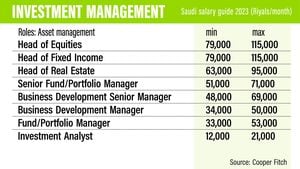The digital marketing sphere is undergoing rapid transformation, as businesses scramble to keep pace with the ever-evolving trends driven by technology, particularly artificial intelligence (AI) and the emergence of SEO marketplaces.
Currently, SEO trends are changing at lightning speed, influenced significantly by AI technologies. Marketers find themselves needing to adjust quickly to stay relevant. From voice search to the utilization of AI-generated content, the marketing strategies of 2025 and beyond hinge on adapting to the shifting user behavior shaped by these innovations. According to Entrepreneur, smart home devices have popularized voice queries, altering traditional SEO practices and compelling marketers to adopt more user-friendly strategies.
Voice search is reshaping the SEO language. Users are no longer crafting precise queries but instead posing conversational questions like, “What’s the easiest way to cook pasta?” This evolution of language emphasizes the growing importance of natural language processing (NLP), allowing marketers to focus more on user intent and meaning rather than traditional keyword-centric approaches.
Mobile responsiveness remains imperative for businesses aiming to remain visible. Google’s algorithms prioritize mobile-friendly websites, demanding intuitive navigation, swift loading times, and engaging designs. Failing to optimize for mobile can lead to missed opportunities, as mobile users increasingly expect seamless experiences.
The rise of SEO marketplaces, like the one provided by Legiit, signifies another significant trend reshaping the digital marketing terrain. With brands moving away from rigid agency contracts, businesses are now inclined to opt for on-demand SEO services. Legiit connects companies directly with experts skilled across various aspects of SEO, such as content optimization, link building, and technical SEO. A Legiit spokesperson noted, "The marketplace SEO model empowers businesses to take control of their digital growth, ensuring they invest in expert solutions..."
This agile approach allows businesses to respond proactively to changes brought on by Google’s algorithm updates without depending on lengthy agency timelines or rigid commitments. Instead, they can rapidly adjust their strategies according to real-time analytics, ensuring visibility even as search engine conditions change.
With more emphasis on local SEO, trends are also shifting toward real-time adaptation strategies. Businesses using SEO marketplaces can track improvements and modifications closely, securing transparency and optimizing campaigns based on up-to-the-minute data.
Another noteworthy trend is the growing focus on visual content. Platforms like Google Lens are redefining how consumers search for and discover products, pushing businesses to optimize images and videos for discoverability. Marketers must implement strategies around alt text, metadata, and high-quality visuals to capitalize on shifts toward image-based searches.
Artificial intelligence is undeniably revolutionizing the SEO space. AI-powered tools equip marketers with enhanced capabilities to analyze data, identify trends, and personalize experiences for users. Nevertheless, with these advanced systems come ethical responsibilities. The focus must remain on transparency, and brands need to avoid overreliance on AI-generated content, particularly as misinformation spreads across the digital sphere.
Experts indicate the importance of credibility and authority is poised to increase as SEO evolves. High-quality content built on research and expertise must take center stage. According to the trends outlined by the entrepreneur community, content demonstrating authority will outperform generic offerings, making it imperative for brands to invest time and resources to fortify their reputation.
The future of SEO also points toward augmented reality (AR) and virtual reality (VR) innovations. These technologies hint at the next level of local SEO, where users might receive AR overlays with reviews and directions directly on their mobile devices. The businesses embracing these advancements early stand to carve out substantial competitive advantages.
Indeed, the takeaway message for businesses eyeing success in digital marketing is one of adaptability. Whether through new forms of AI, emergent SEO marketplaces, or mobile-friendly designs, the market demands flexibility and innovation. Disregarding these trends could signify the difference between online growth and obscurity.
Marketers and brands committed to innovation, user experience, and analytics-driven decisions can not only survive but thrive amid these transformative shifts. With the digital horizon constantly changing, those willing to embrace the tide of new trends will cultivate sustainable connections with consumers.



